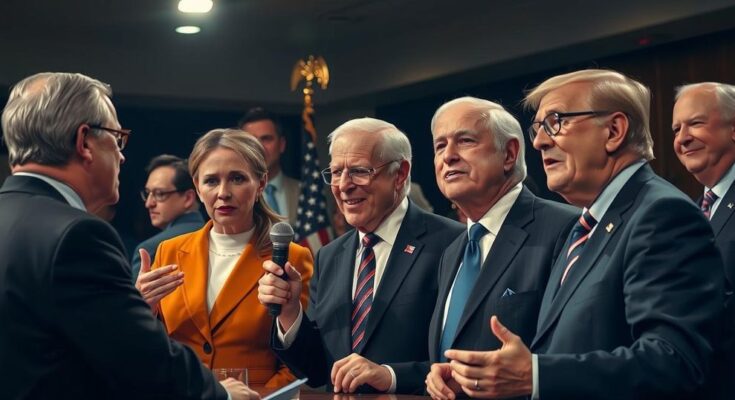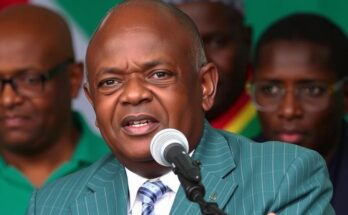World leaders reacted swiftly to Donald Trump’s claimed victory in the 2024 U.S. election, expressing a mix of support and concern. Israeli leaders celebrated the news, viewing it as a reaffirmation of U.S.-Israel relations, while European leaders like U.K. Prime Minister Keir Starmer and French President Emmanuel Macron voiced cautious optimism for continued collaboration amid unease regarding Trump’s foreign policy agenda. Russian officials suggested a potential shift in the U.S. approach to Ukraine under Trump.
As former President Donald Trump declared his apparent victory in the 2024 U.S. presidential election, global leaders began to express their reactions to the prospect of his return to a second term. Among those reaffirming their support was Israeli Prime Minister Benjamin Netanyahu, who hailed the event as ‘history’s greatest comeback.’ Netanyahu emphasized the significance of Trump’s leadership for the U.S.-Israel alliance, remarking on the potential for renewed collaboration in the face of regional instability. This sentiment was echoed by Israeli President Isaac Herzog, who recognized Trump as a ‘true and dear friend of Israel.’ The ongoing conflict in Gaza, sparked by a terrorist attack from Hamas, has heightened the stakes and underscored the complexities of international relations in this context. European leaders showcased a mix of cautious optimism and concerns following Trump’s victory. Hungarian Prime Minister Viktor Orbán—one of Trump’s earliest endorsers—characterized the election outcome as a necessary global triumph. In contrast, leaders such as U.K. Prime Minister Keir Starmer and French President Emmanuel Macron expressed hope for continued collaboration while signaling their reservations about Trump’s previous policies on NATO and Ukraine, which may affect transatlantic relations. Prominent figures in Russia also voiced their thoughts. Leonid Slutsky, head of the International Affairs Committee in the State Duma, suggested that Trump’s administration could pave the way for a more constructive approach to the conflict in Ukraine. He implied that this potential shift could alter the dynamics of U.S. military support for Ukraine, a prospect that alarms European allies who view such support as crucial for Ukraine’s defense against Russian aggression.
The article discusses international reactions to Donald Trump’s declaration of victory in the 2024 U.S. presidential election. It outlines how various leaders from different countries interpreted the implications of Trump’s potential second term, focusing on perspectives from Israel, Hungary, the U.K., France, and Russia. The article highlights the underlying geopolitical tensions, especially concerning ongoing conflicts in the Middle East and Eastern Europe, which shape the leaders’ responses and expectations for future U.S. foreign policy under Trump.
In summary, the global reaction to Donald Trump’s claimed victory in the 2024 presidential election is marked by a blend of enthusiasm and apprehension. Leaders such as Netanyahu and Orbán welcomed the potential for closer ties and policy alignment, while concerns about Trump’s approach to NATO and the Ukraine conflict were prominently expressed by European officials. The complex interplay of domestic and international politics underscores the significant impact Trump’s leadership could have on global affairs moving forward.
Original Source: www.cbsnews.com



